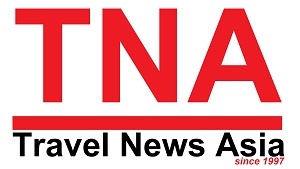|
(02 Feb 2022)
The International Civil Aviation Organization
(ICAO) has created a global directory of public keys required for
authentication of health credentials.
The directory, called the Health Master List
(HML), is expected to make a significant contribution to the
global recognition and verification (interoperability) of
government issued health credentials.
A public key enables third parties to verify that
a QR code displayed on a health credential is authentic and valid.

Malaysia Airlines A359 reg: 9M-MAB. Picture by Steven Howard of TravelNewsAsia.com
The HLM is a compilation of public key certificates signed by ICAO
and regularly updated as more health proofs are issued and new
public keys are required. Its implementation is designed to ease the global
recognition of health credentials outside of the jurisdiction in
which they were issued.
�For international travel today,
it is critical that COVID19 health passes can be efficiently
verified outside of their country of issuance,� said Willie Walsh,
IATA�s Director General. �While the keys for
verification are available individually, the creation of a
directory will significantly cut complexity, simplify operations
and improve trust in the verification process. We encourage all
states to submit their public health keys to the HLM.�
The sharing of public keys
used to perform this verification does not involve any exchange of
or access to personal information. The HML is available on the
ICAO website and all states can upload their public keys and download those of
other governments.
Through a pilot project
associated with the HML, private sector providers of solutions for
governments to verify health credentials will also be able access
the keys. This will help facilitate the broadest coverage of
health certificates in their offerings as international travel
continues to ramp-up. IATA will participate in this pilot program
to support the deployment of the
IATA Travel Pass.
One ID and Digital IDs
The air transport
industry�s interest in this type of directory goes beyond the
COVID19 crisis.
One ID uses digital identity management and
biometric technologies to streamline travel by eliminating
repetitive checks of paper documents.
The contactless checking of
travel health credentials is advancing the experience needed to
operationalize One ID. The challenge is the same: universal
recognition of verified digital credentials irrespective of the
jurisdiction in which they were issued, or the standard used.
The
successful sharing of public keys to verify COVID19 health
certificates will demonstrate that similar keys for digital
identity documents can also be securely and efficiently be
collected and shared, including with private sector solution
providers.
�COVID19 Health Certificates must be removed as we
progress towards overall travel normalization and industry
recovery,� said Walsh. �But we must retain and build on the
operational experience of verifying certificates globally. That
includes securely sharing access to public keys with private
sector solution providers. This will help to drive progress for
contactless verification of traveler identities for which similar
keys are needed. We cannot underestimate how important this will
be for the implementation of One ID which has the potential to
dramatically simplify travel.�
|
Headlines: |
|
|
